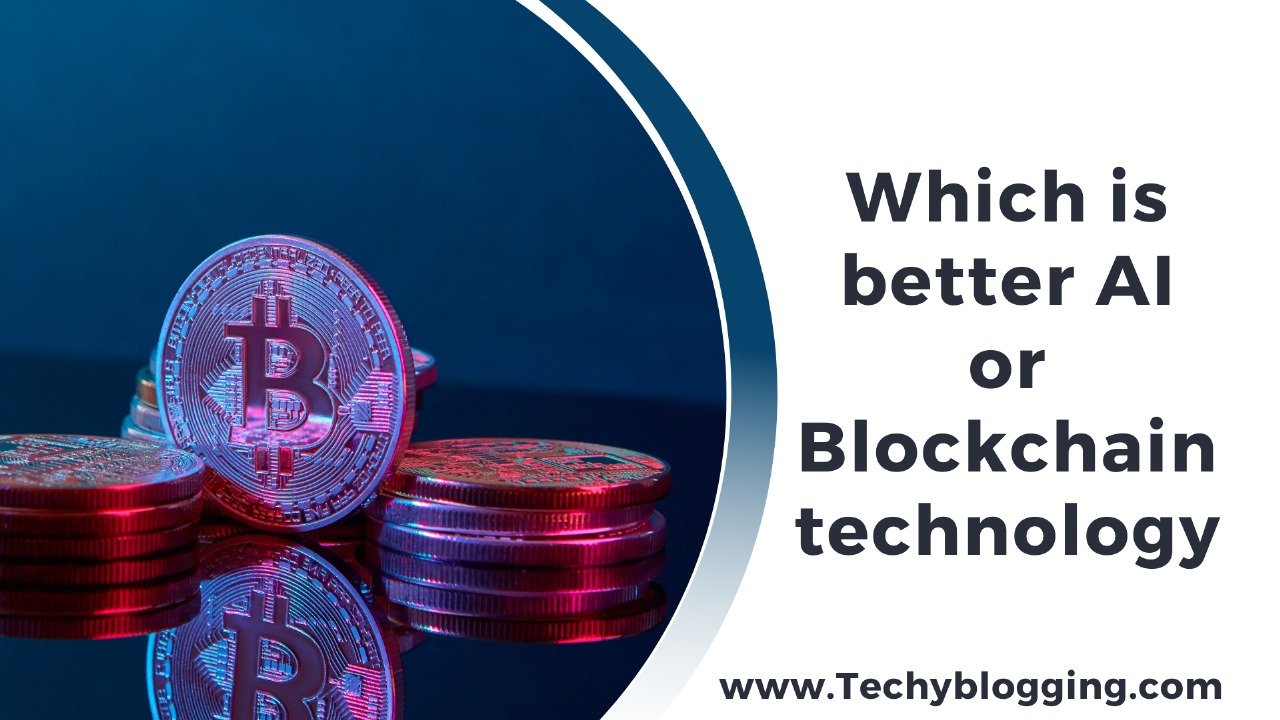With the constantly evolving technological landscape Two innovations have been recognize as leading the pack: Artificial Intelligence (AI) as well as Blockchain. Both have impacted significantly across a wide range of industries. However both serve distinct purposes and each has its own capabilities. In this post we’ll look at the potential, application as well as the consequences of both technologies to discover which has the advantage in the current digital world.
Understanding AI and Blockchain
Artificial Intelligence (AI) refers to the imitation of human-like intelligence within AI-powered machines that can be able to think and to learn. AI includes a range of subfields that include machine learning as well as natural language processing as well as computer vision. The aim for AI is to allow machines to do tasks that normally require human brains like understanding languages as well as recognizing patterns and taking decisions.
Blockchain The Blockchain, on its own is a digital ledger that can be use to create an efficient and secure record keeping. It functions as a block chain with each block containing a record of transaction that is encrypted. One of the main advantages of blockchain is its capacity to favor confidence and transparency, without the requirement of central authorities, making it a great option for businesses that need secured transactions.
Key Strengths of AI
- Information Processing and Analysis: AI excels at processing huge quantities of data fast and effectively. Machine learning algorithms can detect patterns within data and allow organizations to take informed choices by relying on data analytics that are predictive.
- Automatization: AI has revolutionized automation, which has led to greater efficiency and effectiveness in a variety of industries. Jobs that used to require the intervention of humans can now be accomplished by smart technology, cutting down on operational expenses.
- Customization: AI is at the forefront of providing personalized experience, ranging from customized suggestions for e-commerce, to personalized learning on platforms for education. The ability to adjust to the individual’s preferences increases user involvement.
- Innovative technology on Healthcare: AI applications for healthcare such as the diagnostic tools and treatment plan techniques, are revolutionizing the way patients receive care. AI is able to analyze medical information analyze trends, spot patterns as well as assist with clinical decision-making.
Key Strengths of Blockchain
- Security The decentralization of blockchain is a guarantee against hackers and fraud. After data has been record on a blockchain, it is in no way altered without a consensus from the network. This makes it an ideal solution for delicate transactions.
- Transparency and traceability Each transaction in a blockchain can be seen to everyone involve, which promotes transparency. This can be particularly useful for supply chains where people can monitor the source and progress of goods.
- Decentralization by getting rid of the need for a central authority blockchain gives users more power and decreases the chance of single points that fail. The decentralization helps build trust between the participants of a network.
- Smart Contracts: Blockchain enables the creation of smart contracts–self-executing contracts with the terms of the agreement directly written into code. The contracts will automatically be executed in the event that predefined conditions are fulfilled improving processes, streamlining the process and eliminating the requirement to use intermediaries.
Application Areas
AI Applications:
- Financial: AI is transforming the financial sector through algorithmic trading, risk assessment and detection of fraud. AI can analyse market developments and make trades with rapid speed, resulting in more informed financial decision-making.
- Retail Retailers utilize AI to manage inventory Chatbots to assist customers as well as personalized marketing strategies for to increase the overall shopping experience.
- Transportation AI lies an integral part of autonomous vehicles. It optimizes routing and making safety improvements.
Blockchain Applications:
- Supply Chain Management Blockchain is use by companies for greater effectiveness and transparency in their supply chain. Through providing data in real-time about product movements, the stakeholders are able to identify bottlenecks and boost the efficiency of logistics.
- Bitcoin and other cryptocurrencies: Bitcoin and other cryptos are construct using blockchain technology. This allows unintermediated financial transactions that are not centralize.
- voting systems Blockchain could enhance security and the integrity of voting systems by reducing the chance of fraud, and improving the confidence of voters.
Challenges and Limitations
Both blockchain and AI have their own unique set of issues.
AI Challenges:
- The bias: AI algorithms can keep biases in the learning data that can lead to biased outcomes when making decisions.
- data privacy Data Privacy: The usage of personal information in AI applications can raise privacy issues which require stringent regulation and ethical concerns.
- Employment Displacement As the rate of automation rises it is creating a greater worry about job losses in industries that heavily rely on humans for labor.
Blockchain Challenges:
- Scalability Blockchain is a great technology for the security and transparency that it promises, its scalability is a problem. The amount of time and energy needed to verify transactions could limit the effectiveness of blockchain in large-scale environments.
- Regulation Uncertainty The legality of cryptocurrencies and blockchains is constantly changing, causing difficulties for companies looking to implement this tech.
- Complexity A technical difficulty of blockchain technology can pose an obstacle to its adoption by businesses that are not familiar with this technology.
AI and Blockchain: A Symbiotic Relationship
Instead of viewing AI or blockchain in terms of opposing techniques, it’s crucial to realize their potential cooperation. By combining AI and blockchain will improve the efficiency of both. In particular, AI can analyze data that is generated by transactions on blockchain offering valuable insight and ensuring the security of data by using blockchain’s security functions. Additionally, blockchain could enhance AI through providing a secure and secure environment to train algorithms, especially in areas that are sensitive, such as healthcare and finance.
Conclusion
In the end, deciding which one will determine which is “better” between AI and blockchain will depend on the specifics of their use. AI excels in automated data processing, as well as personalization. This makes it an ideal choice for organizations trying to boost efficiency as well as customer experience. In contrast, blockchain provides unbeatable protection, transparency and decentralization. It makes the perfect choice for businesses that require security and transparency.
As companies continue to traverse the complex digital world, their decision to use AI or blockchain technology, or both of them will be based on the needs of each company and their ambitions. Future scenarios will likely bring the convergence of these technology, leading to new solutions that make use of the strengths of both. In this era of fast technological innovation, the biggest winners will be the ones who are able to leverage the strengths of AI and blockchain technology to propel advancement and rise trust in the increasingly connected world.




